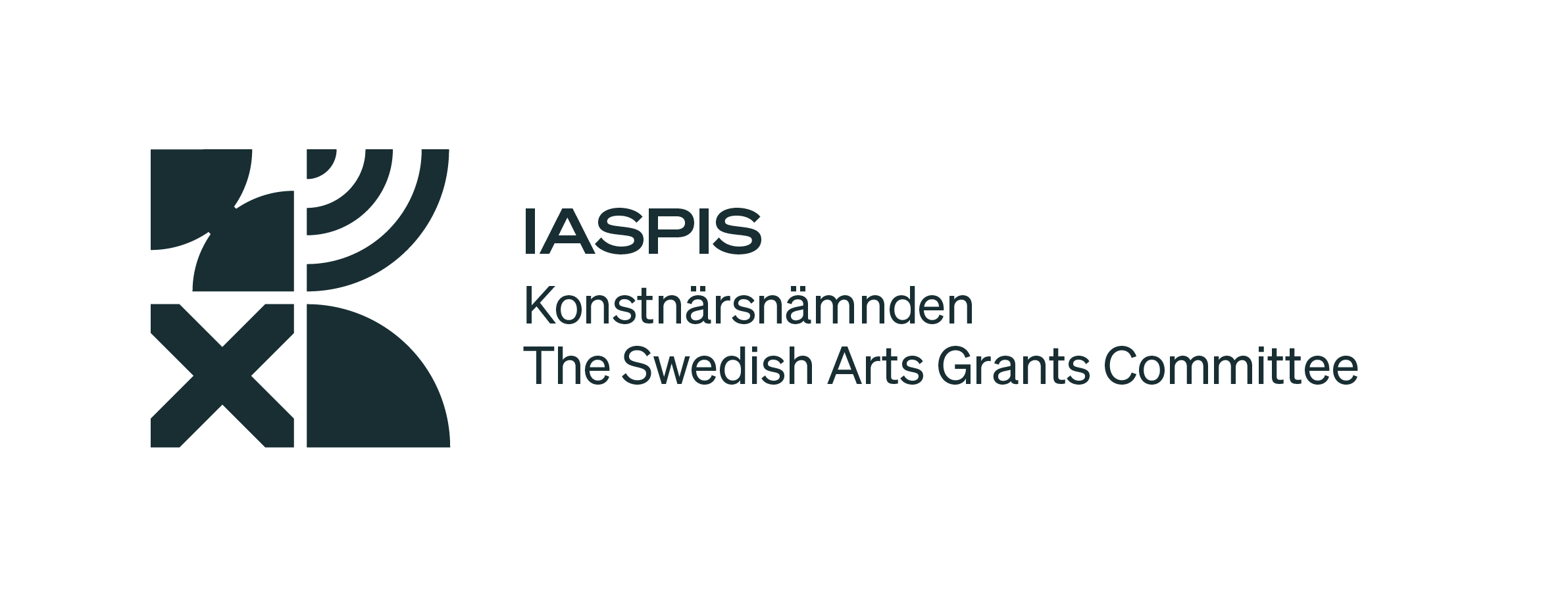Animal sanctuaries: Places for radical multi species kinship
An interview with Susanna Panini by Denise Araouzou
CATEGORY
Ippoasi is an animal sanctuary in the park of San Rossore in Pisa, Italy. Since its foundation in 2013, the refuge has been run by a dedicated team and supported by volunteers who come from all over Italy and beyond to provide care and a home for nonhuman animals rescued from slaughter and abuse by the animal-industrial complex. It is a space for radical healing and the cultivation of selflessness, where profound ways of relating to one another outside extractive economies become possible.
For the last few years, I have been assembling a transdisciplinary and transversal inquiry working towards an ethical-onto-epistemological framework for synthesising critical environmental pedagogies (ecopedagogies) and collective artistic practices. An important question that came up early in my thinking process was one of place. Which places already exist that operate in the ‘margins’ of our society, but could cause significant shifts in how we relate to one another? What kind of places can we learn from to enact socio-ecological transformation? What kind of places (re)configure relations for more just and caring multispecies societies simply by being active with/in them?
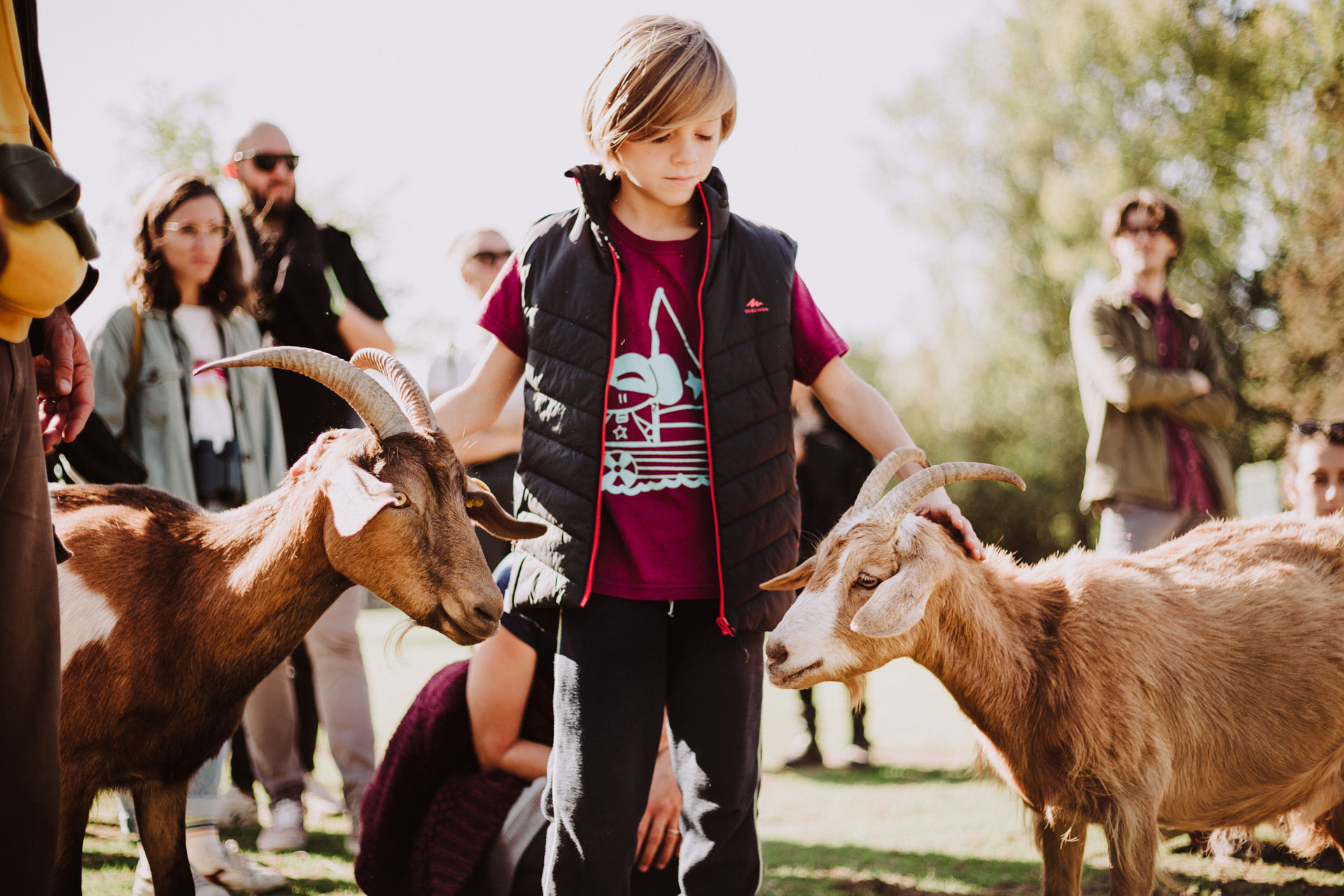
From Ippoasi animal sanctuary. Photo by Ela Radzikowska
When we speak of a ‘social space’ or a ‘public space’, the definition of ‘social’ usually does not extend to, or include nonhuman animals. Typically, we do not design nor plan for multispecies life; therefore, how we relate to nonhumans is limited and dictated by a narrow and often violent frame of value extraction. Ippoasi is also a sanctuary for humans who have come to realise how hegemonic forms of control, oppression, and violence over certain bodies also shape how certain human bodies are treated and controlled.
Ippoasi was founded by the owners of an equestrian centre who transformed almost four hectares into an animal sanctuary after twenty-five years of exploiting horses for racing. In eight days, two hundred volunteers built the fence and basic structures to house eighty new inhabitants, including horses, goats, sheep, cows, pigs, wild boars and donkeys, in an undivided open-air space. There, animals have space to recover from their physical and psychological traumas. The ailments that come with age, either due to their genetic breeding or mistreatment, are taken care of patiently. Trust for humans is regained slowly while lifelong friendships among animals are formed. Since then, Ippoasi has evolved based on the needs of its inhabitants. With new sections added for practical reasons, such as the food preparation stall or the rehabilitation zone for recovering animals. A small library and bookshop were opened and a roofed kitchen stall was set up where the team can prepare meals for their events.
In 2023, I spent a few months volunteering at Ippoasi. An experience that has taught me invaluable lessons on humility, generosity, diversity, nonhuman intelligence and sentience, the animal industrial complex, and the food economy, among many others. In addition to the lessons I am thankful for, I also acknowledge the impact that the sense of community, selflessness and solidarity I witnessed and experienced first-hand had on my thinking and way of life. A year later, I sat with Susanna, one of the core team members and talked about Ippoasi, a place like no other I have been to.
Denise Araouzou: I would like to begin with the path that led you to become an antispeciecist, and how did that lead you to becoming a permanent team member at Ippoasi?
Susanna Panini: So, I became vegan and anti-speciesist around 2010/2011.[1] I was living in Liguria, working and doing political activism in social spaces and social centres. Eventually I realised that our debates revolved almost exclusively on humans, except for one of the spaces I frequented in Genoa, where we discussed anti-speciesism alongside anarchism, mutual aid and politics. So it’s thanks to my activism that I arrived at anti-speciesism; fortunately, from a political angle and not from a moral obligation. This way, I could connect the dots, so to speak, making my journey all the more meaningful. I’ve never been happy to ‘just’ study theory or speak theoretically; I always felt the need to put what I read into practice.
So, in December 2013, I quit my job and made a plan to volunteer at Ippoasi, which was managed by one of the two founders, Cristian, at the time. In 2014, I went as a volunteer for a month and fell utterly in love with this dynamic way of life. It’s the kind of life that speaks to who I am. I’ve understood over the years that I have difficulty staying within boundaries and so Ippoasi became very important for me because it was a place of practice.
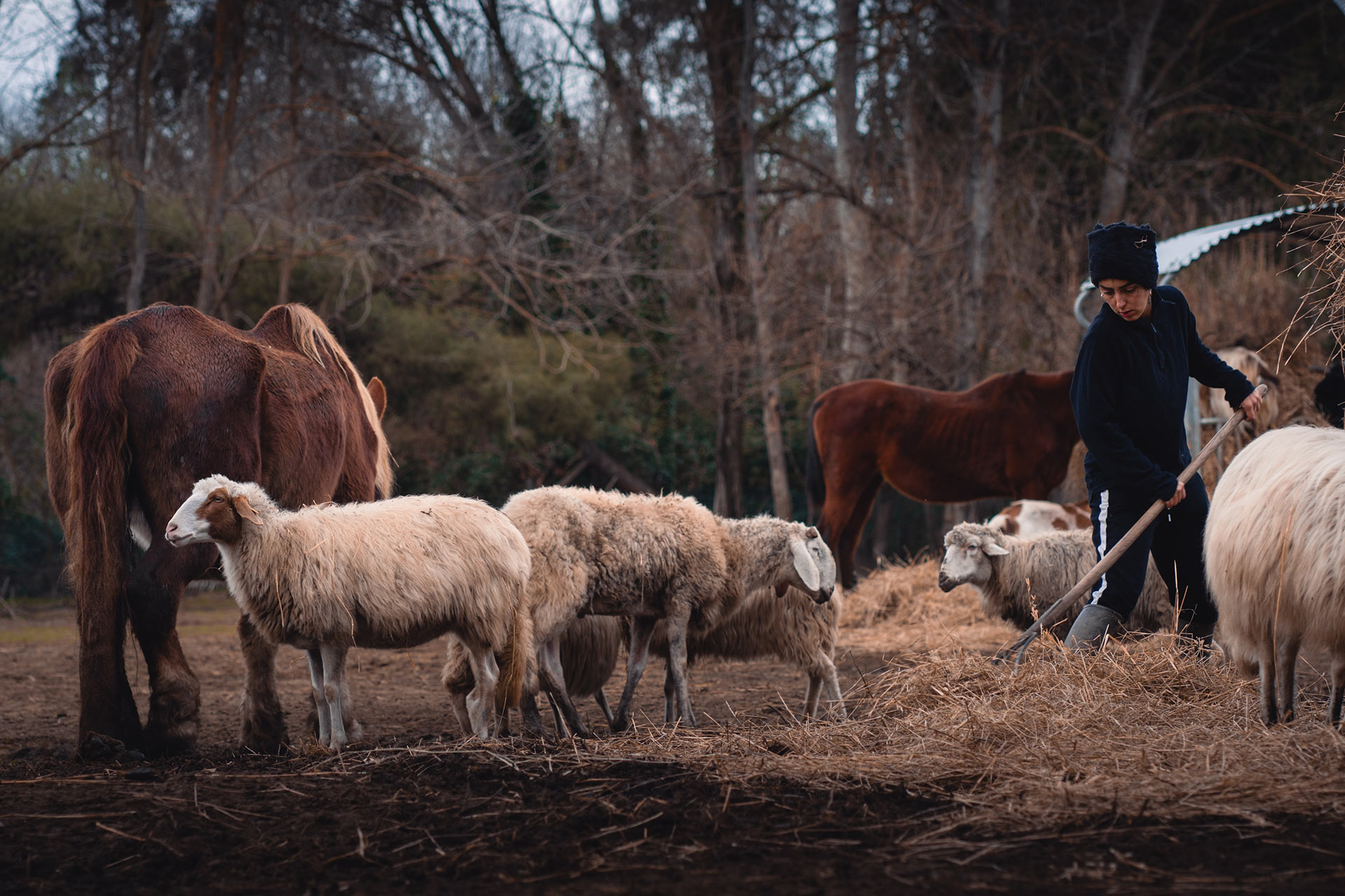
From Ippoasi animal sanctuary. Photo by Ela Radzikowska
Denise Araouzou: Some scholars say that instead of studying other animals to develop this domain of critical thinking, we should instead focus on ourselves and ask why we have accepted and normalised this system of oppression. What do you think? Do you believe that Ippoasi and other sanctuaries can help us rethink or recognise what it means to be human?
Susanna Panini: In sanctuaries like Ippoasi, the boundary between human and nonhuman animals is definitely much more subtle. Regardless, I think it’s fundamental to make peace with the fact that we are human animals. And as much as we can try to consider ourselves as animals, just like all the others, we are not. We have lost so much of that animality. But this should not get in the way of fighting for what is just while also not flattening diversity or differences. There are differences, and it’s okay it is so, but this does not take away from the fact that we can change the way we engage with a place, how we live in a place, how we move through a place, and our relations with others within this place.
We have observed that across sanctuaries, some categories are flattened. For example, genders are flattened, but identity isn’t. The animals’ individual characters come out strongly. But certainly, there are categories that, yes, in fact, are flattened out. I am thinking, for example, of the disabled animals, the male, the female, the child, the mother — they get confused. The signs of oppression on bodies, based on their category, can also be observed in a sanctuary. It’s as much about being with bodies, as being among bodies. It’s something you can almost touch. In fact, you can.
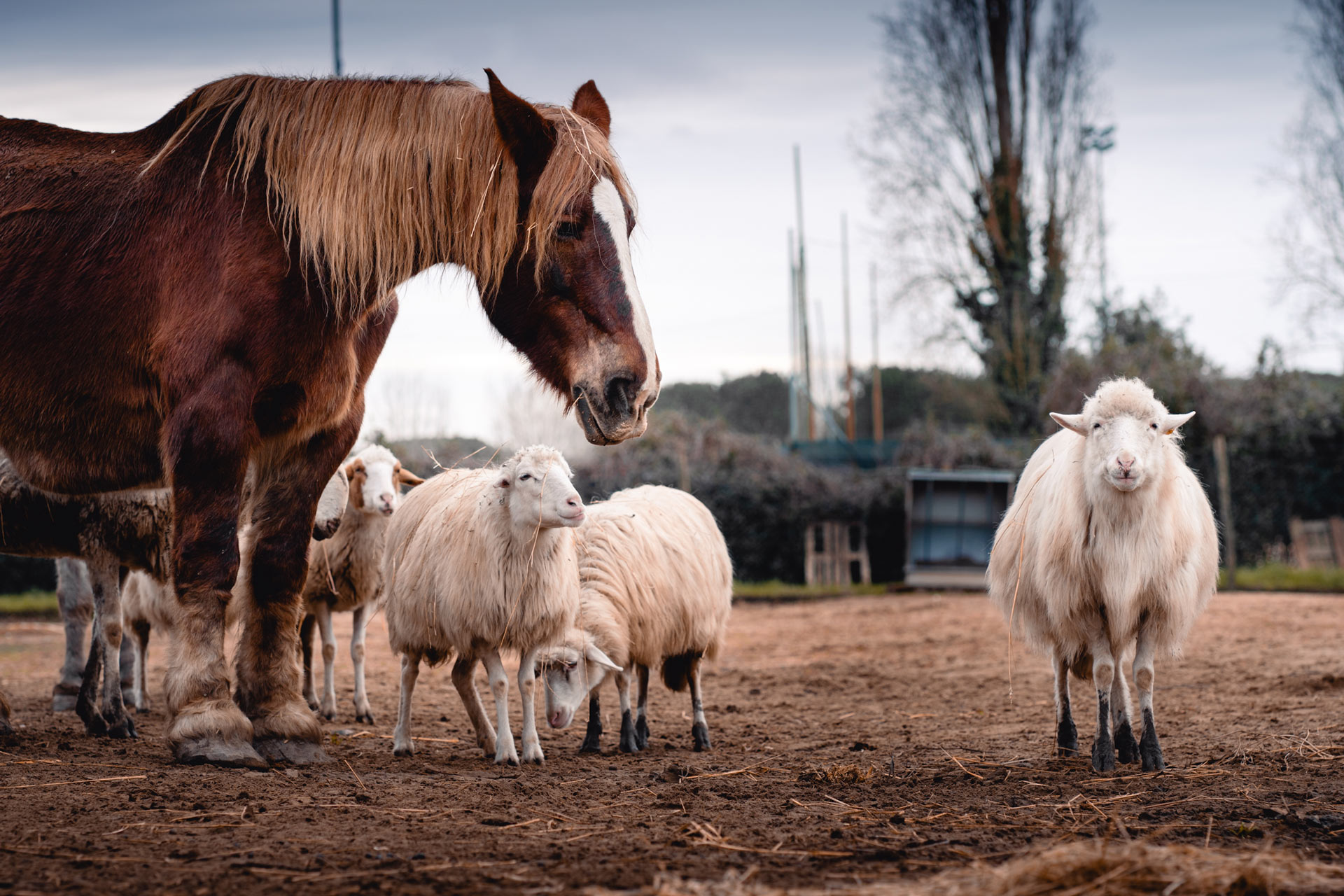
From Ippoasi animal sanctuary. Photo by Ela Radzikowska
I also really like being in a sanctuary because if we have a political and intersectional approach, we can also do a lot of theory. I also think a lot about disability justice. The disabled and broken body or the female as a category to be exploited more because it has reproductive capacity. Building on the topic of practice, sanctuaries can be places for political and critical theory and scientific research. One can see and study the effects of the industrialisation of human and capitalist power on bodies, not only nonhuman animals but also humans. I firmly believe that practice and theory should go together. It is only through having real experiences that you can write something.
Denise Araouzou: I know you create all kinds of engaging educational programs. What do you think about shifting the social imaginary through this practice?
Susanna Panini: The change of the narrative and its theories go hand in hand. In the sense that it happens simultaneously through the work that we do in the shelter, and thanks to people like you who work in the ‘centres’ of knowledge or of culture and fight to bring in new theories and perspectives. In the last few years, people from all disciplines, including sociology, anthropology, philosophy, economy, tourism, and ethology, have come to volunteer or interview us or get to know the sanctuary and the people behind it.
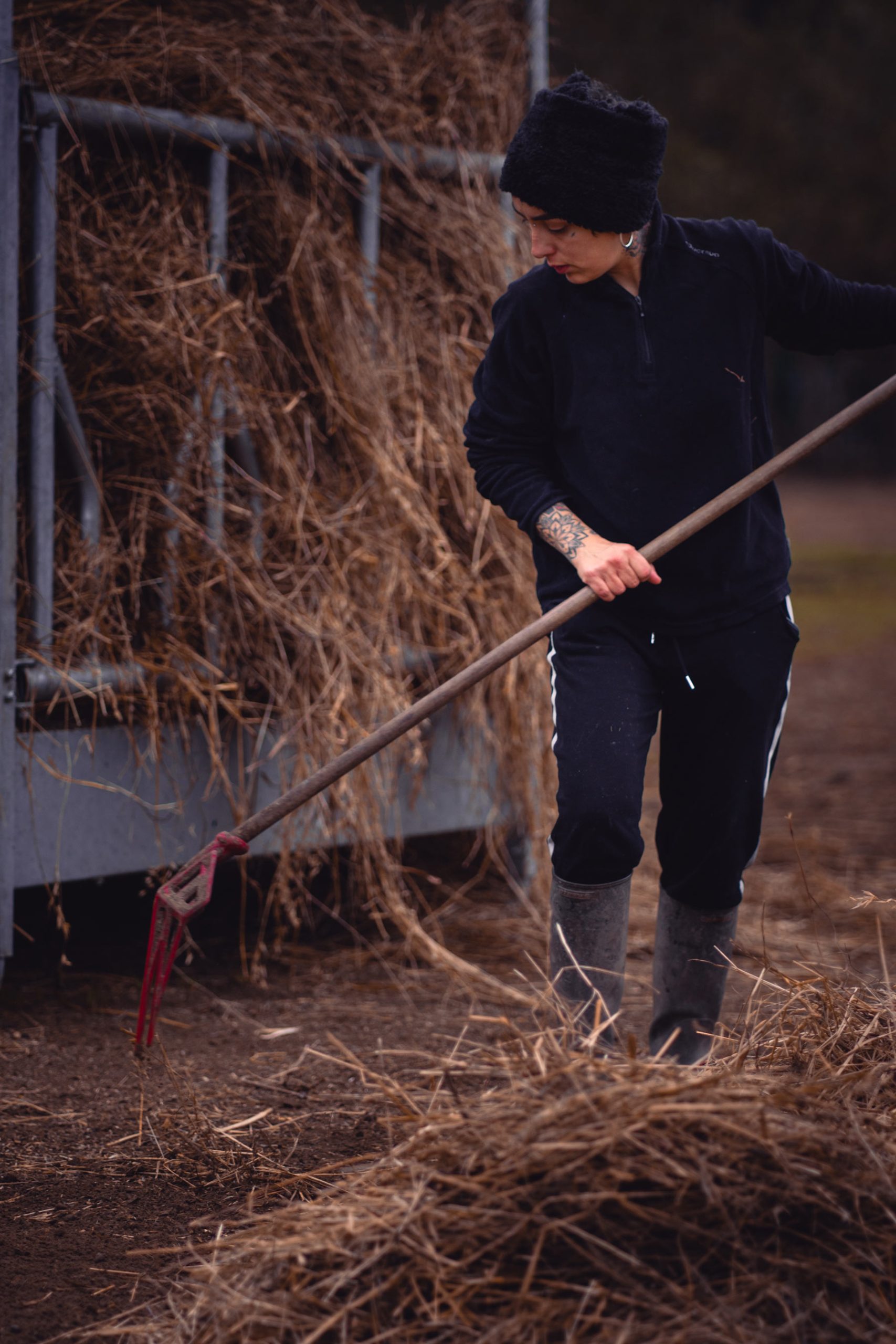
From Ippoasi animal sanctuary. Photo by Ela Radzikowska
Every sanctuary is precious. They are places of struggle and resistance, and this very much has to do with the people behind them. Who is telling its story? Who lives with it, cares for it, and what is their outlook on life? I’ve always read, studied and participated in the political life of my region as much as I could, so let’s say I had a political gaze on reality. This is important, in my opinion, because if my gaze had been a bit more moral and was limited to ethics or spirituality, I think it would also risk limiting the potential of the sanctuary. So studying is also essential for us who work in the sanctuaries. There’s this rhetoric in Italy: those who manage a sanctuary are ignorant. Like that stereotypical rhetoric that rural peasants are detached from culture because they don’t have time. I am very happy to say that many Italian associations – and I can only speak for Italian ones – are changing in this sense. They are getting closer to theories.
Everything intersects and is entangled, and often, the narrative of the anti-speciesist revolution goes hand in hand with the study of anti-racist feminism and decolonial perspectives that can easily be applied to the experience of animals. In the sense that animals are an abused, oppressed, marginalised class like other human marginalised groups.[2]
Denise Araouzou: That’s true; I was versed in these theories before I came to Ippoasi, but the experience of being with the inhabitants and seeing your dedication daily has brought radical care to life. Ippoasi has flourished and established other spaces and projects, for example, the ‘Travelling Library’, ‘Ippoasi Kitchen’, and the ‘Ippoficina’ (DIY workshop), alongside all the other public programs and events you do. How would you explain a pedagogy rooted in anti-speciesism and animal liberation? What aspects do you consider fundamental to teaching in an ethico-political approach?
Susanna Panini: The first thing, for us at least, is consistency. We can teach and show as much as we like to, young and old, but it’s an issue if we cannot convey how we practise what we preach. I firmly believe in being as consistent as possible. And I am not talking about being puritanical or perfect. I am talking about radicality in how we care for others, the attention, the sensitivity, the empathy, the kindness we cultivate while holding on to the anger as the desire to change, the willingness to fight, to resist, and stick through the suffering or the loneliness that comes with this work. Consistency is fundamental to being an example to everyone who comes to this place, and what it represents. If I told people I would talk about empathy, kindness and care and then mistreat animals or eat their bodies or force animals to stand still so children can touch them, this would be inconsistent and convey a crooked, untrue message. So it’s also a matter of paying attention to the minor gestures. It’s not always easy. There are days when you’re tired, your answers aren’t well-rounded, or you’re not always kind and patient. Sometimes, this fight can really get too much.
Then it’s also a matter of being honest with oneself. We can only change things if we are honest with ourselves and dare to name things as they are—even the uncomfortable stuff. For example, to have the courage to speak about suffering and speciesism to children in a constructive, gentle manner.
Then it’s a matter of first-hand experience, immersing yourself where animal bodies live and fostering interspecies relationships with care. Studying, recognising what doesn’t feel right, and imagining things as we would like them. It’s not a matter of just passing by the sanctuary but living it, maintaining it, building it, and being part of it with others. So, in my opinion, anti-speciesism must be a community practice in the sense of all-rounded collective care. As far as it relates to the pedagogy we practice at Ippoasi, we have certainly improved the work we do. Thanks to our library, we have books and precious tools for observing the world, some practical, others metaphorical, which we refer to to enrich our stories and make our allegories simpler to understand or to translate the message in more intuitive ways. Then, there are different hands-on approaches, such as collage and other craft workshops. In the future, Ippoficina will contribute to this through teaching and working with children and adults to build essential structures or elements for the sanctuary—even small things. It comes down to collaboration and participation. Even what we are doing now. Every exchange is precious.
Denise Araouzou: Do any of these ideas come from volunteers or visitors who offer suggestions? What does the creative process of Ippoasi look like?
Susanna Panini: I am very restless; so many things arise from some of my most intimate dreams, but once they are verbalised, they take a shape of their own through the everyday interaction of the team. But the beautiful thing about the sanctuary is that we welcome everyone’s ideas and proposals. Honestly, though, it’s the group that is more rooted in this place, either as volunteers or permanent members who work here, who have more ideas. Only because they live and breathe the space and feel the diverse needs on their ‘skin’, so to speak. Perhaps a visitor, rightly so, is taken away by the beauty of the encounter of caressing a cow or pig for the first time or learning about their stories. Some ideas start small and gradually grow as they slowly simmer in our heads. For example, ‘Ippoasi kitchen’ came up on the fly when I suggested it would be nice to do a project like ‘Food Not Bombs’ [3], but then I can’t really cook! So it became real thanks to others. Having a library has always been another dream of mine. Ippoficina is something that Claudio, another permanent member of Ippoasi, had always dreamt about, and gradually, it’s becoming a reality. So I would say it’s a process of someone’s idea becoming collective. If it’s a beautiful idea for everyone, then it grows thanks to everyone. The many people who have come and gone, volunteered or worked, have left their little mark in Ippoasi.
Denise Araouzou: Lastly, I wanted to ask about implementing anti-speciesist education in formal education. I saw that school visits often take place at Ippoasi, so even though the formal education system does not officially implement this critical aspect in its curricula, it seems some schools are open to teaching children about it. Which brings me to my question: Up until which point are the teachers themselves curious to learn or aware of what Ippoasi represents? And how important is it to teach the teachers?
Susanna Panini: It’s essential for teachers and parents. Often school visits are organised by teachers who are themselves anti-speciesists. But I’ve started sending some documents before school visits for teachers who are not, just so they know it’s not a petting zoo and that we will be speaking about ‘heavy’ things. But when anti-speciesist teachers come, it’s very meaningful because the kids are already prepared; they know what we are talking about, and the conversation can go into depth. At the same time, it’s also essential for the teachers because it enhances their existing curriculum of the year. For example, this year, elementary school visits came with teachers accompanied by anti-speciesist specialists who studied zoos or aquariums and other more specific places of animal exploitation.
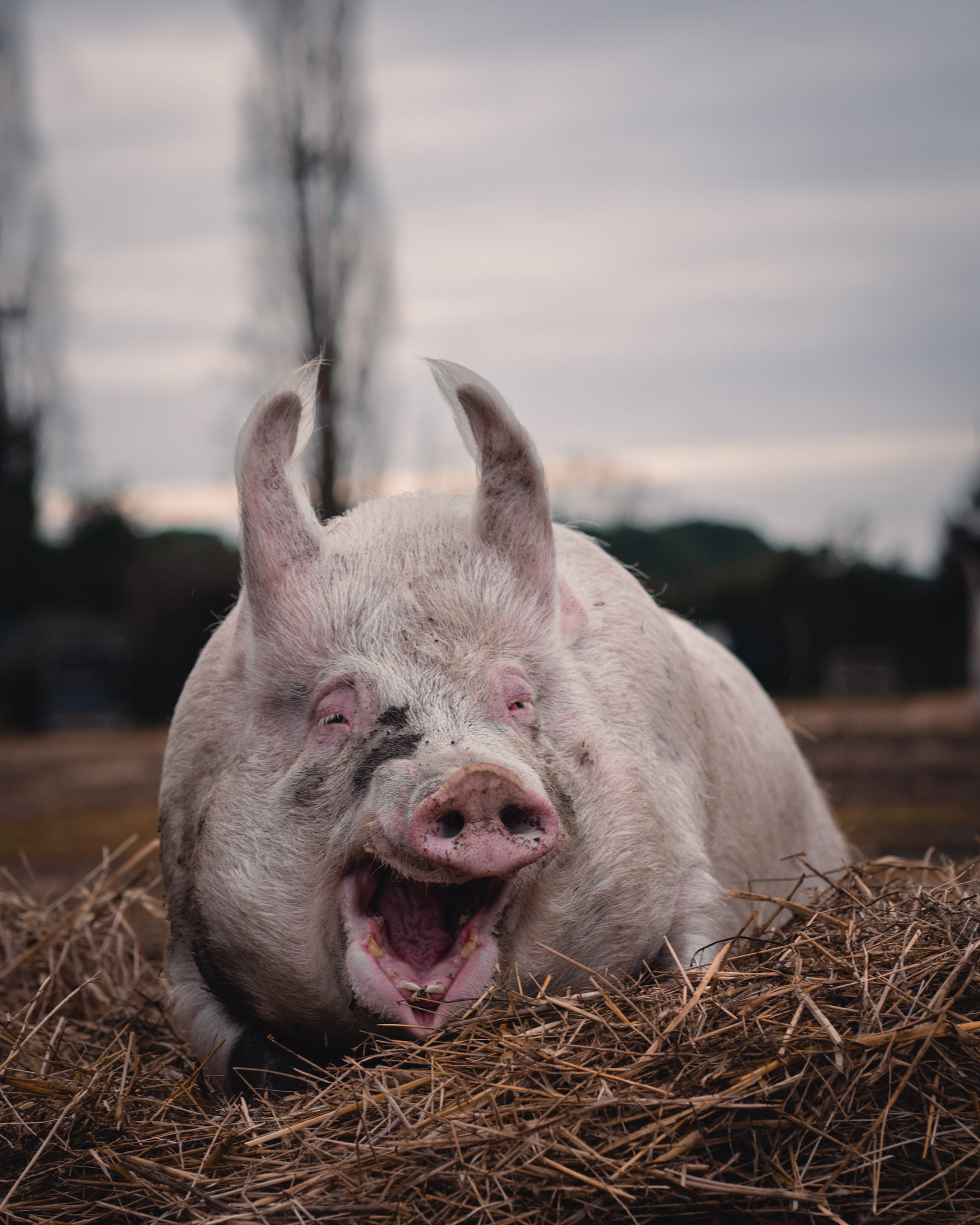
From Ippoasi animal sanctuary. Photo by Ela Radzikowska
Then there are angry parents whose children after visiting Ippoasi decide they don’t want to eat pigs. Usually it’s the children that have the biggest capacity for empathy. So, there is a big problem in the adult world of both denial and stifling their children’s freedom to choose. Topics like zoos and aquariums are always easier to talk about with families and parents than nutrition, especially in Tuscany, as you can imagine.
High schoolers also visit. For several years now, one teacher has brought a new class every year, and they must do a school project on this subject. But if there was more training and adults were more interested in their future and this world, our cause could be much more powerful. And then, of course, it’s all the more difficult when a class visits only once a year. The educational projects we do at Scuola Itinerante are more frequent, once a month or even twice, so it’s easier to connect with the children and their parents.
1.
Anti-speciecism is the active refusal to see one species as superior to another.
2.
As Black American activist and co-author of Aphro-ism (2017) writes: “Animal” is a category that we shove certain bodies into when we want to justify violence against them, which is why animal liberation should concern all who are minoritized, because at any moment you can become an “animal” and be considered disposable. Being a radical anti-racist activist isn’t about regurgitating the same accepted knowledges over and over as much as it’s about having the courage to learn more about the different contours of white supremacy, which show up in spaces such as our food choices and attitudes toward other vulnerable groups. Being radical requires you to be uncomfortable, exposing yourself to new ideas that challenge the frameworks you operate through. Being radical is about asking the tough questions, engaging with different worldviews, and prizing critical thinking over popularity.” (p. 127)
3.
“‘Food Not Bombs; is an all-volunteer movement that recovers food that would otherwise be discarded, and shares free vegan and vegetarian meals with the hungry in over 1,000 cities in 65 countries in protest to war, poverty, and destruction of the environment. We are not a charity but dedicated to taking nonviolent direct action. Our movement has no headquarters or positions of leadership and we use the process of consensus to make decisions. We also provide food and supplies to the survivors of natural disasters, and people participating in occupations, strikes, marches and other protests.” See: https://foodnotbombs.net/new_site/index.php
is a curator and researcher from Cyprus whose practice unfolds through critical environmental pedagogies and collective artistic practices. At the intersection of an MA in Education for Sustainable Development at the University of Gothenburg and a post-masters at the Royal Institute of Art in Stockholm, titled Collective Practices II: Symbiotic Organisations she began a research project titled Systems, Pedagogies and Practices for Learning on a Damaged Planet, supported by the Kone Foundation. This practice-based and transdisciplinary inquiry delves into the ethico-onto-epistemological and practical aspects of cultivating and promoting an ecopedagogical approach within artistic and curatorial practices and their institutional frameworks. ‘Learning on a Damaged Planet’ unfolds in Cyprus, Italy, Sweden and Finland while being inspired by several collective efforts elsewhere.
The Sanctuary of Ippoasi: https://www.ippoasi.org/the-sanctuary/
Ko, A., & Ko, S. (2017). Aphro-ism : essays on pop culture, feminism, and black veganism from two sisters. Lantern Books.
Learning Becoming: https://www.learninginbecoming.org
